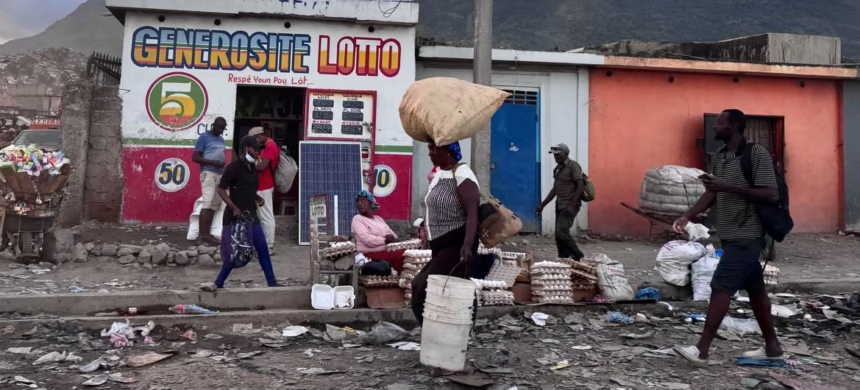The intensifying gang-related violence and mass displacement it causes are worsening the humanitarian crisis in Haiti, the United Nations warned on Wednesday.
According to the latest data from the UN Office for the Coordination of Humanitarian Affairs (OCHA), nearly 1.3 million people have been forced to flee their homes across the country. Just last week, an additional 15,000 people were displaced following armed attacks in the communes of Dessalines and Verrettes in the Artibonite department.
The UN Children’s Fund (UNICEF) and its partners have screened over 217,000 children for acute malnutrition since the beginning of 2025. Of those, only 21,500 have been admitted to treatment centers — just 17 percent of the 129,000 children estimated to require life-saving care this year.
This dire situation is largely due to widespread food insecurity. According to the Integrated Food Security Phase Classification (IPC), 5.7 million people — more than half of Haiti’s population — faced high levels of acute food insecurity between March and June 2025.
Haitian children are also facing an educational emergency. Over 1,600 schools across the country remain closed — a more than two-thirds increase since the start of the year, according to UN figures.
“Without access to education, children become far more vulnerable to exploitation and gang recruitment,” said Stéphane Dujarric, spokesperson for the UN Secretary-General, during a press briefing at UN Headquarters in New York.
In response, UNICEF has provided learning opportunities to over 16,000 children and delivered mental health and psychosocial support to more than 100,000.
Despite ongoing efforts by UN agencies, humanitarian needs on the ground far exceed current response capacities. “The current support is only a fraction of what is required,” Dujarric emphasized.
Ongoing insecurity continues to hinder humanitarian operations, creating access challenges, supply shortages, and the shutdown of many health facilities.
As a result, countless displaced families — without shelter, clean water, food, or emergency medical care — remain unable to access even the most basic services.
This is further compounded by a severe funding shortfall. Dujarric noted that Haiti remains the least funded of all active UN humanitarian appeals worldwide.
By mid-2025, Haiti’s humanitarian response plan had received just 9 percent of the $908 million required, he lamented.
https://ctninfo.com/?p=35717&preview=true
Source: United Nations







